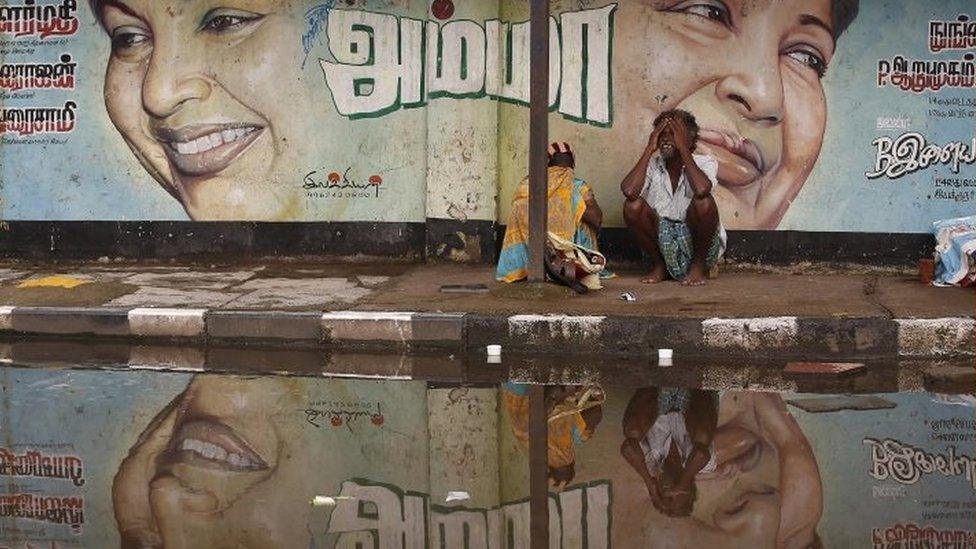Obituary: Jayaram Jayalalitha
- Published
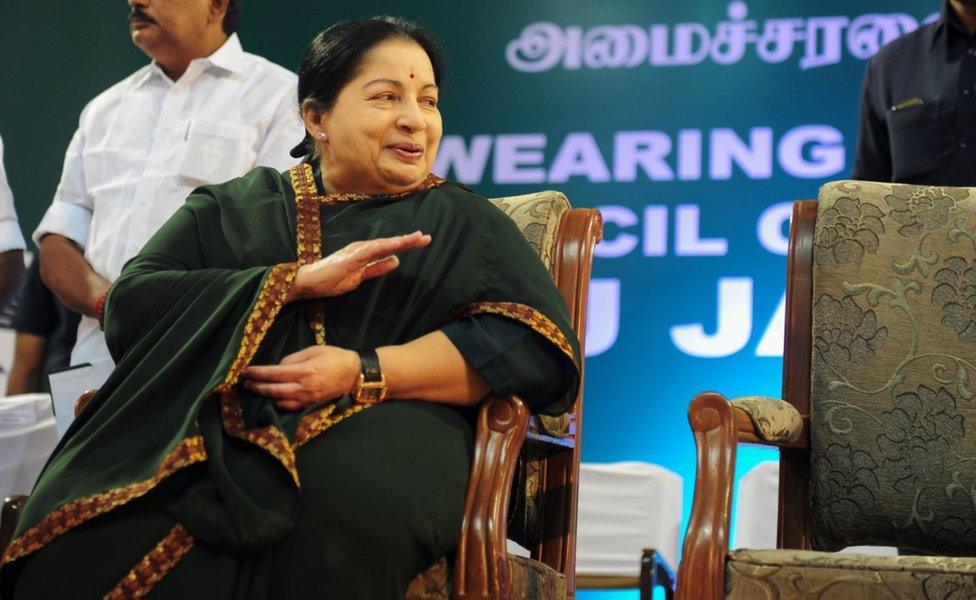
Jayaram Jayalalitha was one of India's most colourful and controversial politicians, adored by some and condemned by others.
Her admirers say she played a key role in the economic development of the southern state of Tamil Nadu - but critics say she encouraged a personality cult and fostered corruption in the state.
One of India's most successful actresses, her political career was marked by allegations of self-enrichment to fund an extravagant lifestyle.
As head of the AIADMK party, she was elected as chief minister of Tamil Nadu on four occasions, overcoming convictions and jail terms to return to office.
Jayalalitha was born on 24 February 1948 in what was then the Mysore State. Her father was a lawyer who squandered most of the family fortune and who died when she was only two years old.
She excelled at school and, after studying music and dance, began training as an actress. Over the ensuing three decades she became one of India's most popular, and high-profile artists, appearing in more than 140 films.
Naturally charismatic, she was introduced to politics by the actor-turned chief minister, MG Ramachandran, with whom she starred in many of her films.
Elected to the Tamil Nadu Assembly in 1989 she took over the All India Anna Dravida Munnetra Khazagham (AIADMK) party becoming the first ever woman opposition leader. A year later she became chief minister for the first time.
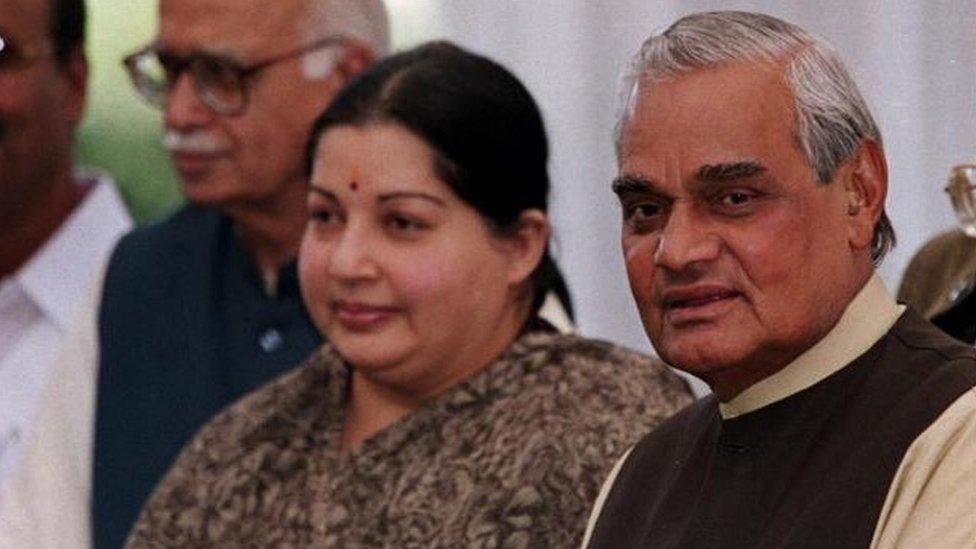
She became one of India's best known politicians
She championed the cause of the rural and urban poor by introducing subsidised food canteens, providing free laptops to thousands of school pupils and students and launching other populist schemes like giving away food mixers and grinders to families.
Many publicly funded projects in Tamil Nadu were named after her, including a subsidy scheme, under which canteens served food at low prices.
They were dubbed Amma Canteens - Amma in Tamil is Mother, an honorific euphemism by which Jayalalitha was often addressed by her followers in the state.
These were followed by Amma Bottled Water, Amma Salt, Amma Pharmacies and subsidised Amma Cement.
Barred
She attracted a level of support that verged on the bizarre.
Some followers were known to profess their loyalty through acts such as walking on hot coals or drawing her portrait with their blood and her officials were reported to prostrate themselves at her feet.
Incidents of her loyalists setting fire to themselves whenever she faced political setbacks were not unknown.
She did much to encourage this cult of personality and huge cut outs of Jayalalitha dominated the Tamil Nadu skyline.
Her first term in office came to an abrupt end in 1996 when her party won only four seats in the Legislative Assembly and she lost her own Bargur constituency.
The new ruling party wasted little time in investigating allegations of corruption amongst growing concerns about her extravagant lifestyle.
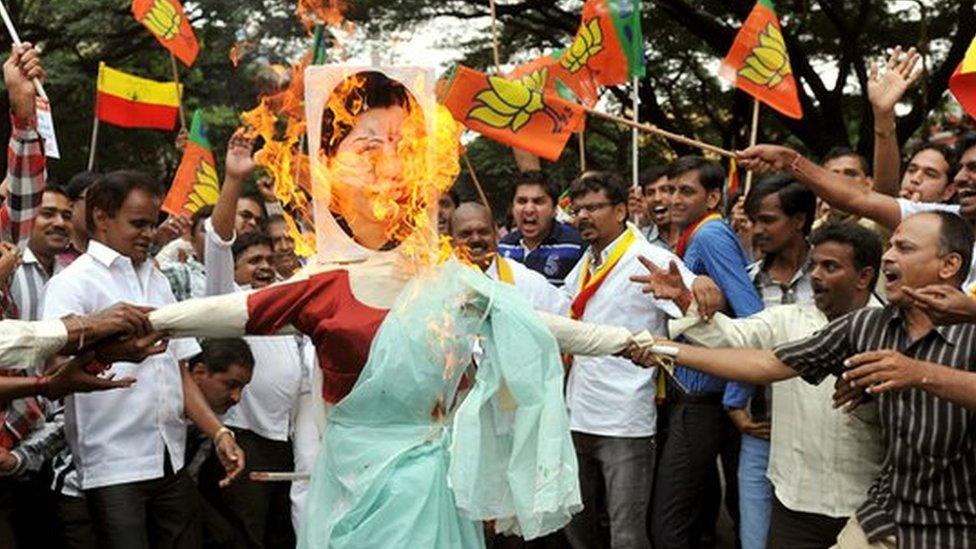
A divisive figure - she was the subject of many protests
During one raid on her premises following a corruption allegation in 1996, police said they had found large quantities of diamond-studded gold jewellery, more than 10,000 saris and 750 pairs of shoes.
She was eventually charged with receiving financial incentives in a scheme to buy more than 40,000 colour televisions for local villages and served 30 days in jail.
She was barred from standing in the 2001 elections because she had been sentenced to five years imprisonment following allegations she had illegally obtained state-owned property
However, her party swept back into power and she was reappointed chief minister despite not having been elected to the state assembly.
Although her tenure was swiftly ended, her successor was effectively under her control and in 2003, when her conviction was overturned, she successfully contested a vacant assembly seat and was once more chief minister of Tamil Nadu.
Third term
But controversy continued to dog her. There were allegations that she used the Tamil Nadu Marketing Corporation (Tasmac) - which had a monopoly on the sale of alcohol in the state - to pay for many of her pet projects.
The continuing allegations seemed to do little to dim her charisma or lower her popularity. Following the elections in April 2011, she was sworn in as chief minister for a third term.
She was said to nurse ambitions of a greater role in national politics. In the run-up to the 2014 Indian parliamentary elections many of her followers suggested she aspired to become India's prime minister, although she did not confirm this.
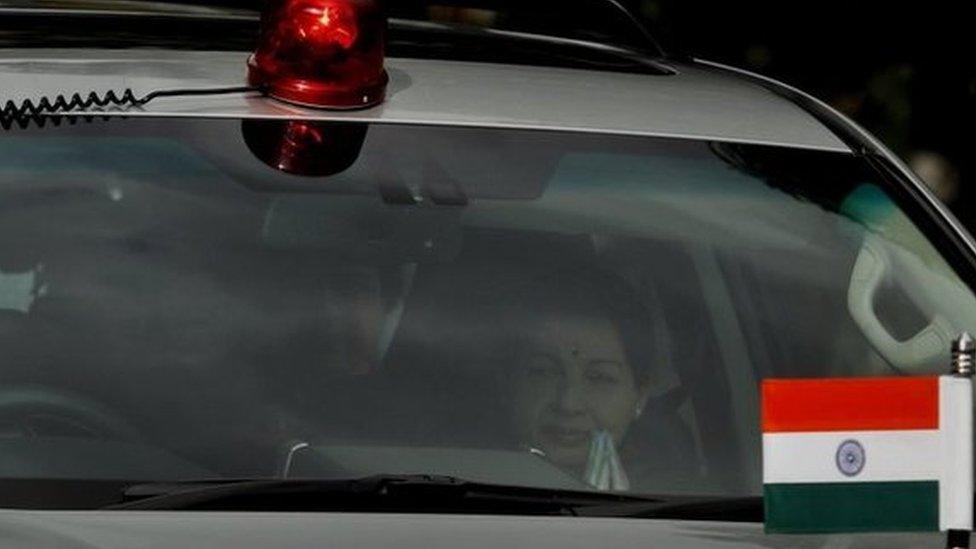
In 2014 she became the first Indian chief minister to be disqualified from power
In 2014 she was sentenced to four years in jail after being convicted of using her position to amass a huge property portfolio as well as a collection of expensive jewellery and luxury cars. It saw her become the first Indian chief minister ever to be removed from office.
However, eight months later, in May 2015, the conviction was overturned and within days she was reinstated as chief minister of Tamil Nadu.
In the following year's elections she swept back into power, winning her own seat by a handsome margin and retaining the post of chief minister.
"Even when 10 parties allied themselves against me, I did not have a coalition and I placed my faith in God and built an alliance with the people." she said. "It is clear that the people have faith in me and I have total faith in the people."
Jayalalitha's supporters say she was instrumental in making Tamil Nadu one of India's most economically influential states. But her critics painted her as a deeply corrupt figure who manipulated the system and saw herself as above the law.
- Published23 May 2016
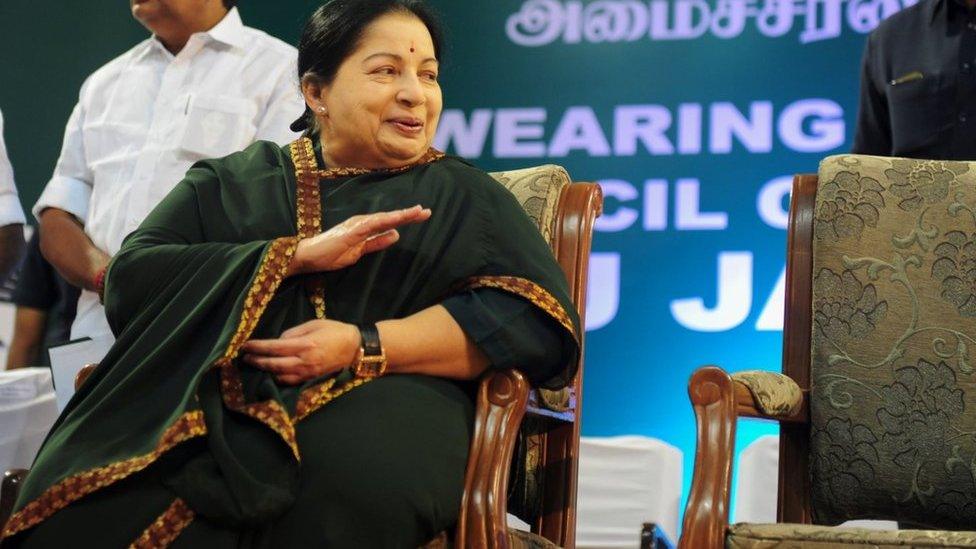
- Published23 May 2015
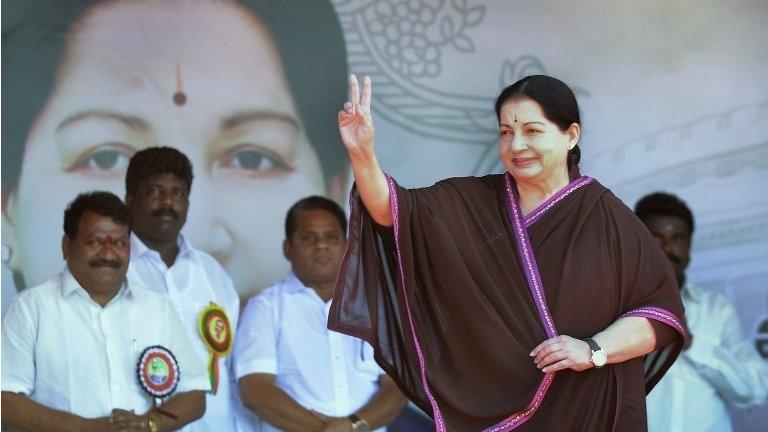
- Published7 December 2015
